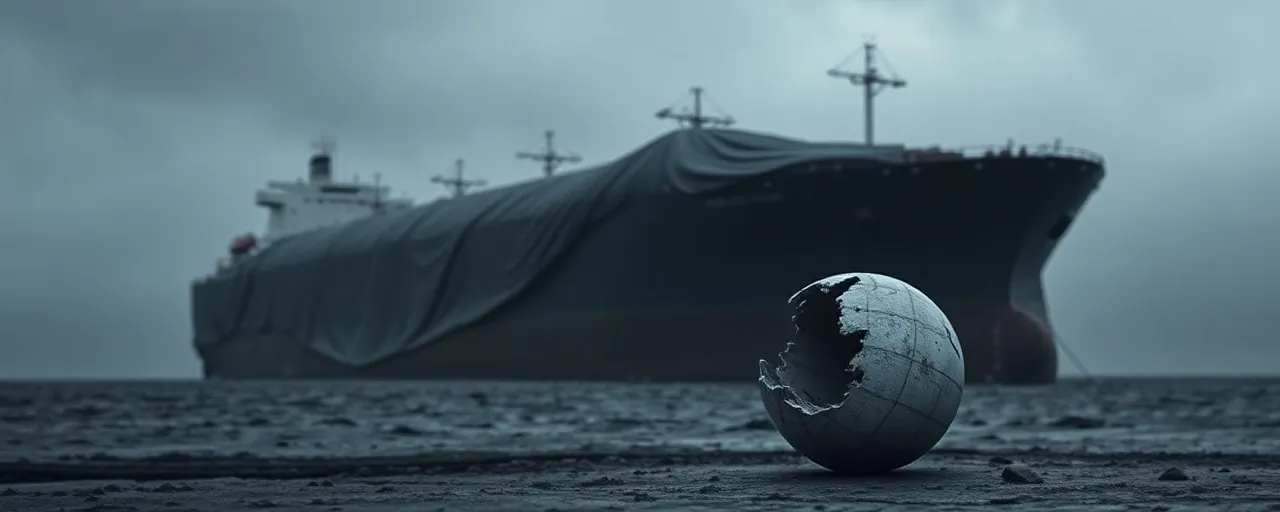A Bold Strike Against Iran’s Shadow Fleet
The United States just landed a gut punch to Iran’s illicit oil empire. On April 10, 2025, the Treasury Department’s Office of Foreign Assets Control unleashed a barrage of sanctions on Jugwinder Singh Brar, an Indian national based in the UAE, and his sprawling network of shipping companies. This isn’t some minor player; Brar commands nearly 30 vessels, many slinking through the Persian Gulf as part of Iran’s notorious 'shadow fleet.' These ships aren’t just moving oil; they’re bankrolling Tehran’s destabilizing antics across the Middle East. It’s a move that proves America isn’t messing around when it comes to choking off Iran’s lifeblood.
Brar’s operation is a textbook case of defiance against international order. His fleet engages in high-risk ship-to-ship transfers, dodging oversight in waters off Iraq, Iran, and the UAE. They load up on Iranian crude, blend it with other nations’ products, and slap fake documents on it to sneak into global markets. This isn’t innovation; it’s a calculated middle finger to the rule of law. Treasury Secretary Scott Bessent nailed it: these are 'unscrupulous shippers and brokers' profiting off chaos. The Biden-era softness is gone; under President Trump’s renewed leadership, the U.S. is back to crushing these schemes with unrelenting force.
The Machinery of Deception
Let’s break this down for the everyday American who wonders why this matters. Brar’s outfit, including UAE-based Prime Tankers LLC and Glory International FZ-LLC, plus India’s Global Tankers Private Limited, runs a fleet of mostly smaller Handysize tankers. These aren’t the giants you see in movies; they’re nimble, coastal creepers perfect for smuggling. They pull off ship-to-ship transfers with sanctioned vessels, often with their tracking systems conveniently 'off,' making them ghosts on the water. In 2023, the Glory International-managed NADIYA smuggled Iranian oil for Tehran’s military, while vessels like GLOBAL BEAUTY and GLOBAL EAGLE inked multimillion-dollar deals with the National Iranian Oil Company in 2024. This isn’t just business; it’s a lifeline for a regime that thrives on terror.
Historical patterns back this up. Iran’s been at this game for years, using dark fleets and fake paperwork to dodge sanctions since the Obama days. Research shows they’ve funneled up to 90% of their crude to China, offering discounts that undercut honest markets. The Gure-Jask pipeline and refinery upgrades keep their output humming at 3.6 million barrels a day, even as sanctions tighten. But here’s where it gets real: every barrel Brar’s ships sneak out funds Iran’s proxies, like the Houthis, who’ve turned Yemen into a war zone. The Trump administration’s maximum pressure campaign, revived with gusto, isn’t just talk; it’s a sledgehammer to this racket.
Why This Hurts Iran—and Helps Us
Sanctions like these hit Iran where it counts: the wallet. Tehran’s oil exports are its economic oxygen, and Brar’s network has been a key ventilator. By targeting him, his 30-vessel fleet, and his shady companies, the U.S. is slashing a major artery of revenue that funds everything from missile programs to Houthi attacks on shipping lanes. Look at the numbers: in 2022, vessels like GLOBAL EMERALD and GLOBAL STAR hauled over 25,000 metric tons of Iranian petroleum, rebranded as Iraqi to fetch higher prices. That’s cash Tehran doesn’t deserve, and now it’s cash they won’t get. This isn’t just punishment; it’s a strategic win for American security and global stability.
Some might argue this pushes Iran to get craftier, maybe lean harder on China or barter deals. Fair point, but it misses the bigger picture. China’s appetite for cheap oil doesn’t change the fact that tighter sanctions under Trump’s watch have already slashed Iran’s exports by up to 200,000 barrels a day, per recent estimates. The more we clamp down, the less room they have to maneuver. Brar’s operation relied on lax enforcement in places like the UAE and India, but with the U.S. leading the charge, those gaps are closing. This is about keeping the pressure on until Iran’s regime feels the heat—and bends.
The Global Stakes Are High
Zoom out, and the stakes get even clearer. Iran’s shadow fleet doesn’t just flout sanctions; it threatens the entire maritime system. These aging tankers, dodging regulations with AIS blackouts and falsified logs, are floating disasters waiting to happen. One spill in the Gulf of Oman, and we’re talking billions in damage, choked trade routes, and an ecological mess. The EU’s been wrestling with Russia’s shadow fleet, and the parallels are stark: unchecked, these rogue operators turn vital waters into lawless zones. America’s sanctions on Brar signal we’re not waiting for the next crisis; we’re stopping it cold.
Time to Finish the Job
This latest move is a masterstroke, but it’s not the endgame. The Treasury’s action freezes Brar’s assets, blocks his companies, and puts every bank and port on notice: deal with these clowns, and you’re next. It builds on five rounds of sanctions since Trump’s National Security Presidential Memorandum 2 kicked off the maximum pressure campaign. The message is loud: America’s done playing defense. Iran’s oil smuggling has fueled its aggression for too long, and dismantling networks like Brar’s is how we starve the beast.
For the average Joe, this means safer shipping lanes, stronger markets, and a Middle East where Iran’s grip weakens by the day. Critics might whine about diplomacy or claim sanctions don’t work, but history proves otherwise. Iran’s economy is staggering; its people are restless. Every ship we lock down, every dollar we block, brings us closer to a world where Tehran can’t afford to play bully. The U.S. has the tools, the will, and the right man in charge to see this through. Let’s keep the hammer swinging.
